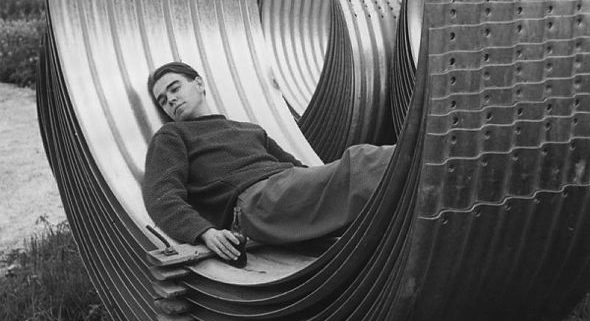Pekka Tarkka
Issue 4/1977
| Archives online, Authors

Pentti Saarikoski (1937–1983). Photo: Markku Rautonen / Otava
Born in 1937, Pentti Saarikoski was one of the many Finnish children who were evacuated to safety in Sweden during the Second World War. For almost twenty years – 1958–1975 – he had a sensational career as the enfant terrible of the new wave of post-war Finnish verse and as a translator of classical Greek poetry. Now Saarikoski is once more in Sweden, where he lives in a kind of spiritual and intellectual exile. The vast scope of Saarikoski’s work as a translator reveals the breadth of his interests and poetic skill. Among his translations into Finnish are works by Aristotle, Euripides, Sappho, Theophrastus, Xenophon and Homer’s Odyssey (a free verse translation that has been particularly praised for the freshness it brings to the work). Saarikoski’s translations of J. D. Salinger and Henry Miller have introduced modern urban slang into Finnish literature, and together with his brilliant translation of James Joyce’s Ulysses (1964) epitomise the catholicity of his interests. Saarikoski’s first poems were written in the spirit of ‘Finnish Modernism’: short poems, pleasing in their treatment of language, subtly erotic and ironic, drawing their strength from a fleeting image, metaphor or momentary fancy. Early in the 1960s, Saarikoski emerged from his scholarly retreat. He became a favourite of the yellow press and of television, he was held in the awe normally reserved in other parts of the world for royalty and pop stars. He loved this publicity and the scandal he deliberately created: he saw his function as to provoke the youth of the day to reject established ideas of authority and morality. He further outraged the middle classes (into which he himself was born) by joining the Communist Party.
More…

